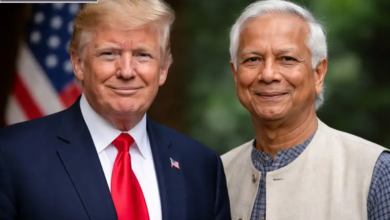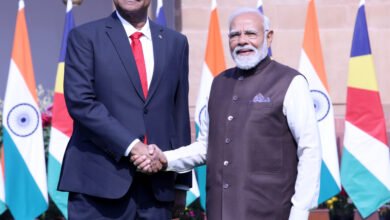Russia pushed into historic default by sanctions
Russia defaulted on its international bonds for the first time in more than a century, the White House said, as sweeping sanctions have effectively cut the country off from the global financial system, rendering its assets untouchable.
The Kremlin, which has the money to make payments thanks to oil and gas revenues, swiftly rejected the claims, and has accused the West of driving it into an artificial default.
Earlier, some bondholders said they had not received overdue interest on Monday following the expiry of a key payment deadline on Sunday.
Russia has struggled to keep up payments on $40 billion of outstanding bonds since its invasion of Ukraine on Feb. 24.
“This morning’s news around the finding of Russia’s default, for the first time in more than a century, situates just how strong the actions are that the U.S., along with allies and partners have taken, as well as how dramatic the impact has been on Russia’s economy,” the U.S. official said on the sidelines of a G7 summit in Germany.
Russia’s efforts to avoid what would be its first major default on international bonds since the Bolshevik revolution more than a century ago hit a roadblock in late May when the U.S. Treasury Department’s Office of Foreign Assets Control (OFAC) effectively blocked Moscow from making payments.
“Since March we thought that a Russian default is probably inevitable, and the question was just when,” Dennis Hranitzky, head of sovereign litigation at law firm Quinn Emanuel, told Reuters ahead of the Sunday deadline.
“OFAC has intervened to answer that question for us, and the default is now upon us.”
A formal default would be largely symbolic given Russia cannot borrow internationally at the moment and doesn’t need to thanks to plentiful oil and gas export revenues. But the stigma would probably raise its borrowing costs in future.
The payments in question are $100 million in interest on two bonds, one denominated in U.S. dollars and another in euros, that Russia was due to pay on May 27. The payments had a grace period of 30 days, which expired on Sunday.
Russia’s finance ministry said it made the payments to its onshore National Settlement Depository (NSD) in euros and dollars, adding it had fulfilled obligations.
In a call with reporters, Kremlin spokesperson Dmitry Peskov said the fact that payments had been blocked by Euroclear because of Western sanctions on Russia was “not our problem”.
Clearing house Euroclear did not respond to a request for comment.FILE PHOTO: The clock on Spasskaya tower showing the time at noon, is pictured next to Moscow?s Kremlin, and St. Basil?s Cathedral, March 31, 2020. REUTERS/Maxim Shemetov
Some Taiwanese holders of the bonds had not received payments on Monday, sources told Reuters.
With no exact deadline specified in the prospectus, lawyers say Russia might have until the end of the following business day to pay these bondholders.
Credit ratings agencies usually formally downgrade a country’s credit rating to reflect default, but this does not apply in case of Russia as most agencies no longer rate the country.
Source: Reuters






